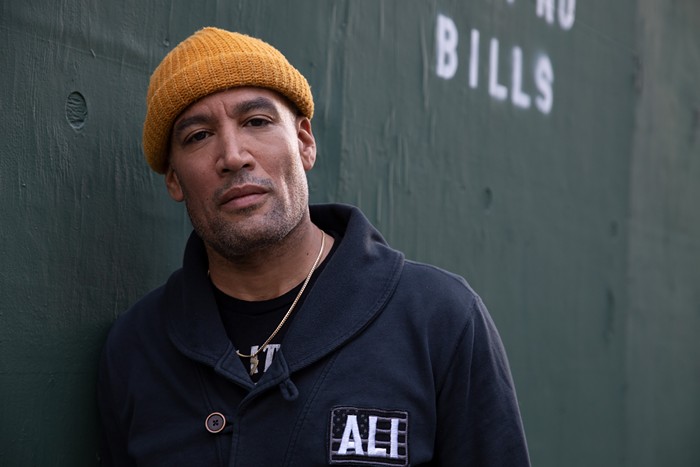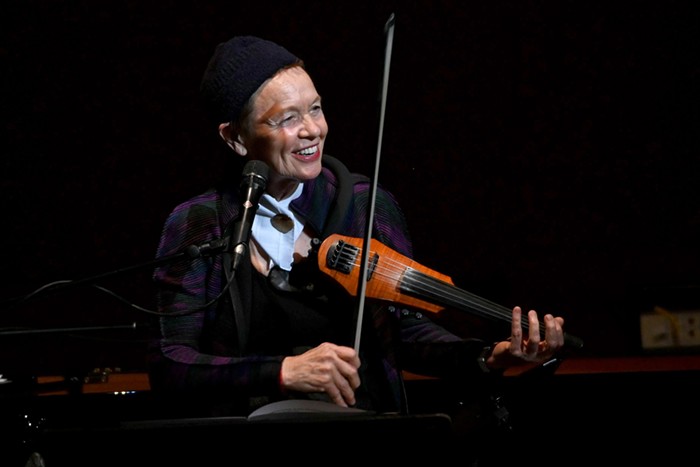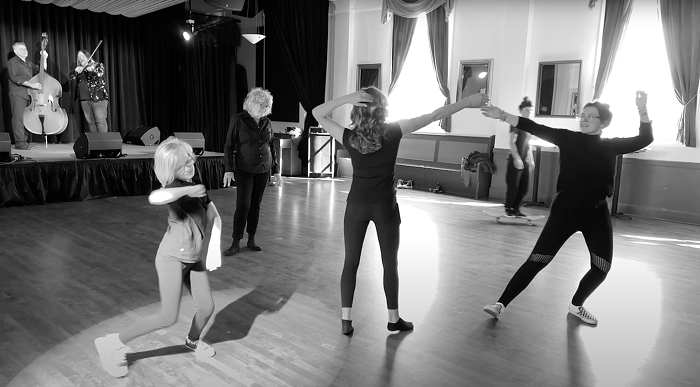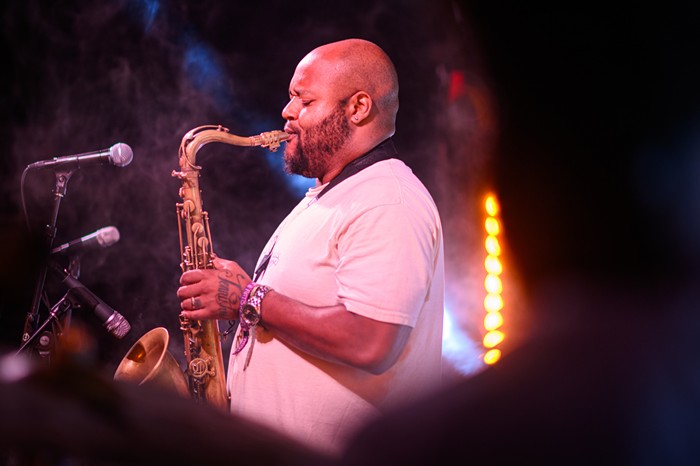Sat June 12
Nocturnal
1800 E Burnside
In the Easter basket of Portland indiepop, watching The Badger King's "electro art-pop opera," The Showering Dragons, evolve from baby form to RACC-granted performance-art feat, has been like watching an egg turn to chocolate gold. The operatic performance piece has been a Portland omnipresence, performed intermittently over four years by vocalist Marianna Ritchey and drummer/laptopian Jona Bechtolt. After a near-final draft was previewed at last year's Time Based Arts Fest, the finished piece will be presented at last this week. It features Bechtolt's beats, guest vocals by Bobby Birdman, a wonderful Super 8 film by Reed Harkness, and is sung tirelessly by the only live performer, Ritchey: a soprano with grit.
How much has The Showering Dragons changed in four years?
Ritchey: At first, Jona and I pictured it being this huge live show. When we initially mailed out demos, we said we wanted to release our "rock opera," which at the time we said would involve "a chorus of singers, 20-50 dancers, and copious use of dry ice." The demos we recorded were all live, with drums and keyboards and guitars. We were really into the triumphant rock and roll aspect of the opera. We wanted to have, like, actors on ropes, flying around the stage. We wanted to make a giant papier-mâché dragon. We talked semi-ironically about "pyrotechnics."
But then as The Badger King became more laptop-oriented, and as we stopped performing with our live band and started performing with just Jona, me and Marshall (the computer), we started getting into the idea of making the opera on the computer, with Reed's film. That's when we stopped calling it "a rock opera, like Tommy," and started calling it, "a conceptual electro art-pop opera," which we thought was a funny phrase but also actually apt.
The film and lyrics illustrate a universal drama: the cycles of love and death. What are some of the broader themes you wanted to communicate with the tale?
I was just thinking a lot, at the time, about how people let themselves get wrapped up in other people--in relationships with other people--at the expense of their own health or well being. I mean, the more tawdry and unfortunately boring answer is that I was ending a particularly dysfunctional and depressing relationship, and so I wrote a bunch of songs about it. But I think it was just a profound time for me in general, one of those times when you are having a really defined "becoming slightly more of a grownup" period, during which I began thinking about all the ways in which people sabotage themselves and others. I was thinking a lot about the alienation people seem to be feeling, especially in this country--the alienation from each other, from life, from reality. I was thinking about school shootings and stuff like that, that seems to be such a modern dilemma.
So I wrote songs about people who are traumatized by various aspects of the modern world, and who retreat into this fantasy, magical nature-land, where they live without having to deal with other people.
But then two of them meet each other and fall in love, and it brings about the demise of the whole fantasy. Because people do have to deal with each other, and people do have weird issues that make them ruin things. I also wanted to convey that the two main characters are actually the same character--just different aspects of her--who are fused into one once they are forced to deal with the fact that everybody dies and people do shitty things to each other. A lot of it was subconscious when I wrote it, which I think is really weird.
You say the opera's about "philosophical extremes"; what do you mean by that?
Just that each of the three main characters represents a pretty well defined philosophy. They aren't intended to be "real people"... each represents an extreme end of a certain human characteristic. Like in The Fountainhead, except without all the architecture and rape scenes.
What about the dragons?
It's not really about dragons. Two of the characters are dying of this weird illness, which is represented by dragons who come to them in their sleep (in the film, they are animated) and bite them. The title The Showering Dragons came from something my dead ex-boyfriend said in his sleep one night that I thought was cool. And since the opera is about death and relationships and how people can destroy each other and themselves, it seemed fitting to entwine this thing he said in his sleep into the opera, because I loved him and he later died. I think about him a lot, because I have a lot of regret concerning him. And all of those things, I feel, are kind of what the opera is about, even though it's not specifically about him.
Also, dragons are mythical beasts. They aren't real. And the opera isn't real either--the characters aren't real, their setting (nature in the most vague, idealistic, phony-romantic sense) isn't real. So I thought it would make sense for them to be visited by dragons.


















